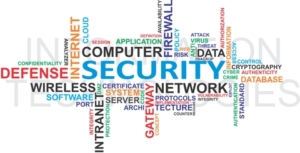Ins and Outs of Call Center Security
Companies that want to employ at-home workers for their call centers to save money and reduce the hassles of office space have to look at security considerations. In addition to thorough vetting of the agents and their equipment, organizations also need to ensure that the security is top-notch. A cloud-based contact center combats these issues.  Here are some considerations:
Here are some considerations:
- Will it anger customers to have an agent who can’t speak clear English? Not only does poor speech of the employee drive some customers away, it also concerns customers who are accessing their data over seas.
When choosing an outsourcer, organizations look for important factors including: (1) agent language capabilities, (2) security capabilities, and (3) financial stability of the outsourcer. – Study conducted by Ovum
- There comes a point where businesses need to put customer comfort first, especially when it comes to security, such as in the case of healthcare and financial concerns—more complex issues. “Homeshoring” eliminates the awkwardness that sometimes arises when someone is trying to bushwhack through the broken English of the customer support. Though homeshoring will cost companies more, this will be offset by lower turnover rates, small learning curve and a higher rate of first-call resolution.
- Telecommuters (agents) should be screened vigorously, including (as a minimum) a background check for Social Security Number, criminal history and citizenship.
- Then, a contract should be drawn up that should include an agreement to customer confidentiality as well as learning specifications.
- A system should allow the customer to enter, via phone keypad, sensitive information such as credit card number—but without the agent seeing this entry.
- Sessions between agents and customers can be infringed upon by hackers who want to gain access or snoop, creating a need for an end-to-end security system.
- Zero-day attacks, which give hackers access, are a big threat. To prevent this, companies must have regularly updated and patched-up systems.
- A firewall is a must, for server protection and back-end systems.
- Also a must is two-factor authentication. This superb verification method includes the factor of device location and other identifiers. An agent must have a way of receiving a one-time code sent by the company to gain access to a critical system. A hacker, for instance, won’t be in possession of an agents cell phone to receive the texted code.
- In tandem with two-factor authentication, the cloud service should require a very uncrackable password so that only at-home agents can gain access. A strong password is at least eight characters (preferably 12) and contains caps and lower case letters, plus numbers and other characters like #, $ and @.
- Cloud services should be 100 percent PCI Level 1 compliant. To enhance security, have a minimum of two PCI-compliant data centers.
Offshoring and outsourcing for call center agents places an even higher demand for security—which is already greatly needed by virtue of the at-home, virtual workplace. When choosing an outsourcing solution consider all of the above. Ask lots of questions and get quality references.
Robert Siciliano is a Personal privacy, security and identity theft expert to Arise discussing identity theft prevention. Disclosures.


























